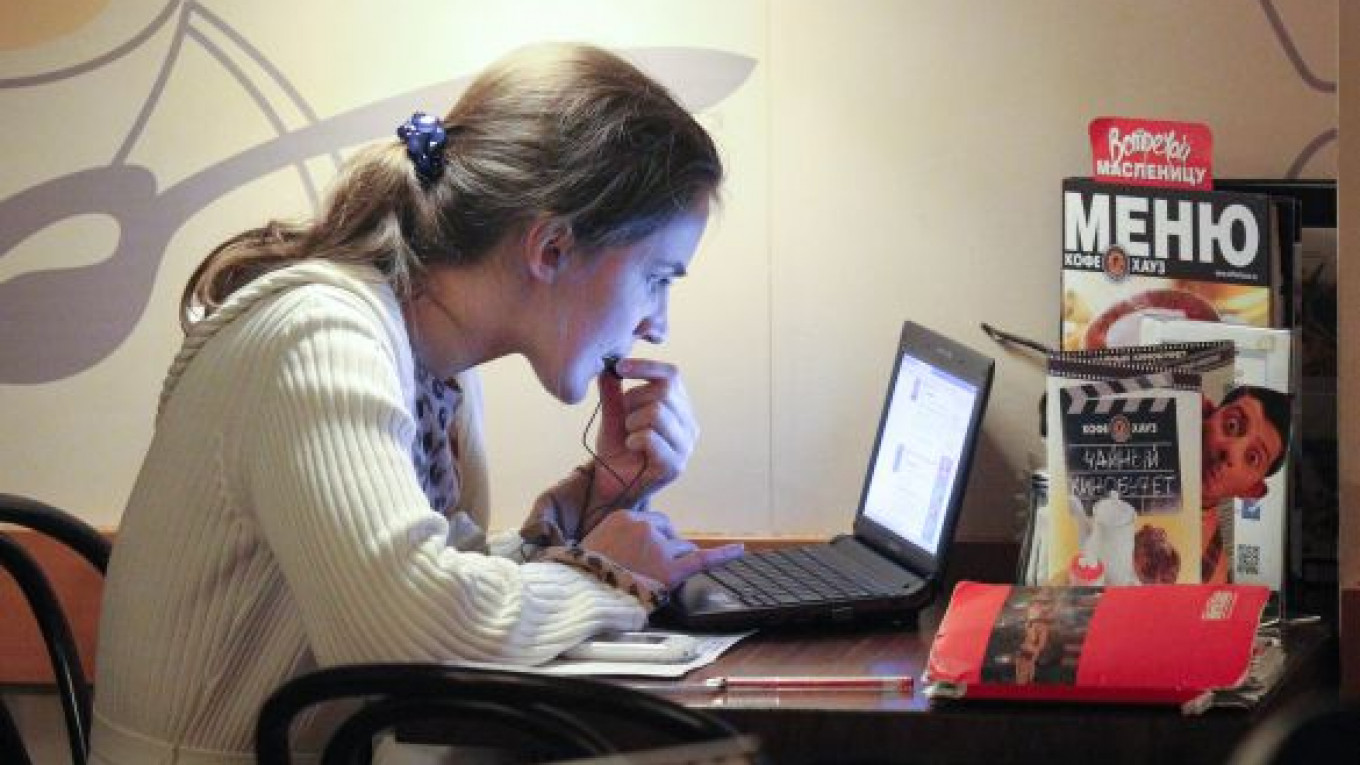The Communications and Press Ministry has proposed banning children from using Wi-Fi networks in public, potentially making cafes, restaurants and other locations providing the service responsible for enforcing the law.
An official with the ministry’s Federal Mass Media Inspection Service, known as Roskomnadzor, said the ban should apply to people under 18 years old.
Locations providing Wi-Fi access would be held legally responsible for implementing the rule, and failing to meet the proposed measure would result in a fine ranging from 20,000 rubles to 50,000 rubles ($640 to $1,600), Vedomosti Thursday.
In Moscow alone, thousands of cafes, fast-food outlets and restaurants, as well as many parks, shopping malls and hotels, have Wi-Fi networks, which let laptop and handheld-computer users go online without a cable or modem.
Maxim Ksenzov, one of the watchdog’s deputy directors, announced the plan at a Wednesday conference with Internet media representatives, Vedomosti reported, citing participants in the conference.
Ksenzov said the proposal is tied to the Internet restriction law that goes into effect Nov. 1, allowing the government to block Web pages that fit the law’s definition of material harmful to child welfare.
Under that law, the government can force websites, website-hosting companies and Internet service providers to block offending sites.
Watchdog spokesman Vladimir Pikov RIA-Novosti the service hasn’t decided whether Wi-Fi providers or owners of businesses offering their own Wi-Fi would be responsible under the law.
Citizens are no longer considered minors in Russia when they reach the age of 18, but people can obtain permission from regional authorities to marry at 16 and can get a motorcycle license at that age.
At national cafe chain Shokoladnitsa, “there are no methods at present that make it possible to identify the age of users logging on to the free Wi-Fi in our shops,” said Gennady Sbytov, the company's vice president for information technology.
“We see a solution to the [broader] issue in restricting access to certain web portals, in accordance with the law, for all guests,” he said by e-mail. “That way, Wi-Fi access would remain available.”
Sbytov said any Wi-Fi restriction at Shokoladnitsa would happen only if required by law.
Also affected by the proposal would be other major food chains providing free Wi-Fi, such as Subway, McDonald's and Kofe Khaus.
Related articles:
A Message from The Moscow Times:
Dear readers,
We are facing unprecedented challenges. Russia's Prosecutor General's Office has designated The Moscow Times as an "undesirable" organization, criminalizing our work and putting our staff at risk of prosecution. This follows our earlier unjust labeling as a "foreign agent."
These actions are direct attempts to silence independent journalism in Russia. The authorities claim our work "discredits the decisions of the Russian leadership." We see things differently: we strive to provide accurate, unbiased reporting on Russia.
We, the journalists of The Moscow Times, refuse to be silenced. But to continue our work, we need your help.
Your support, no matter how small, makes a world of difference. If you can, please support us monthly starting from just $2. It's quick to set up, and every contribution makes a significant impact.
By supporting The Moscow Times, you're defending open, independent journalism in the face of repression. Thank you for standing with us.
Remind me later.






